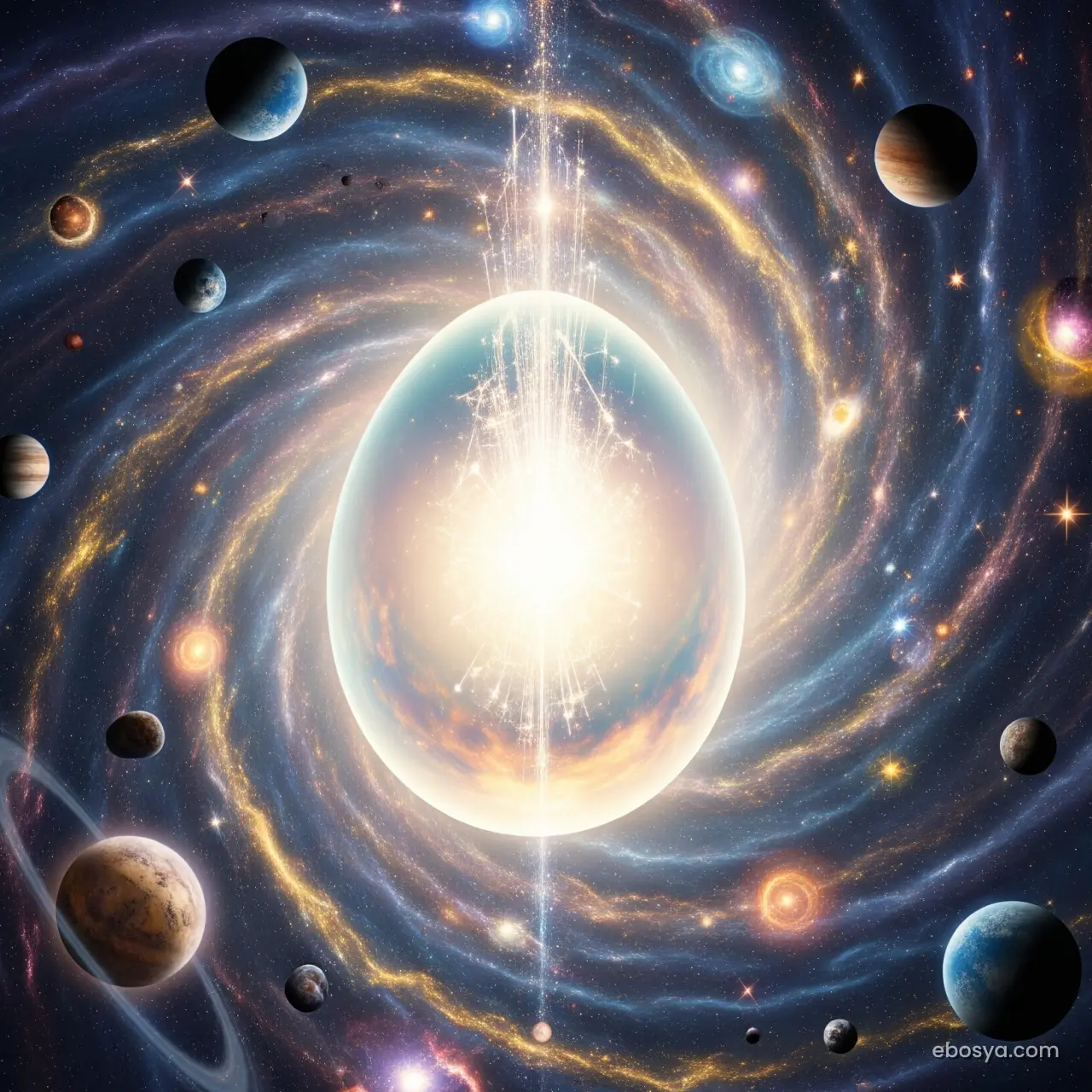A Journey Through the World’s Creation Stories
Creation stories are among humanity’s oldest attempts to explain where we came from—and why we’re here. Across continents and cultures, nearly every religion has a unique perspective on how the universe began. From a divine command to a cosmic dance of energies, these beliefs shape not only our understanding of the world but also our roles in it.
In this article, we’ll explore 12 major religions’ creation stories—not as dusty mythology, but as living narratives that continue to inspire billions today.
✝️ Christianity: A Divine Blueprint in Seven Days
Christianity begins at the very beginning—Genesis. According to the Bible, God created the world in six days and rested on the seventh, giving us the rhythm of work and rest. Each day had its role: light and dark, sky and sea, land and plants, sun and moon, animals, and finally, humans—Adam and Eve. They were placed in the Garden of Eden, representing harmony between God and creation.
Creation, in Christianity, is not random. It’s intentional, good, and purposeful.
☪️ Islam: Creation by Divine Command
In Islam, Allah is the singular, all-powerful Creator. The universe was made in six “ayyam” (periods), not necessarily days as we know them. Allah formed the heavens, earth, rivers, mountains, stars, and all living beings. Humans were created from clay, with Adam as the first human, honored with knowledge that even the angels didn’t possess.
Islam teaches that when Allah wills something, He simply says “Be,” and it is—a reflection of divine power and unity.
✡️ Judaism: Order, Covenant, and Responsibility
Judaism shares the Genesis story with Christianity, but emphasizes the sanctity of Shabbat (Sabbath) and the idea that humans are stewards of creation. God formed the world in six days and rested on the seventh. Adam and Eve’s disobedience in Eden brought human struggle but did not break the divine covenant.
For Jews, creation isn’t just a story—it’s a moral framework for life.
🕉️ Hinduism: Cycles Within Cycles
Unlike linear timelines, Hinduism sees creation as a cycle—endless and ever-evolving. Multiple creation stories exist. In one, the god Brahma emerges from a lotus blooming from Vishnu’s navel. In another, the primordial being Purusha is sacrificed, and from his body comes the cosmos and society.
Time is cyclical, and the universe goes through ongoing phases of creation, preservation, and destruction. Everything is divine—and yet, illusionary (maya).
☸️ Buddhism: A Universe Without a Beginning
Buddhism steps away from the idea of a Creator. It teaches that the universe has no fixed beginning—only endless cycles shaped by karma and cause-effect (pratītyasamutpāda). Stories like the Aggañña Sutta offer symbolic origins but focus more on spiritual truths than historical facts.
What matters in Buddhism isn’t who created the world, but how to escape suffering and achieve enlightenment.
🪯 Sikhism: The Word That Became the World
In Sikhism, creation began with a divine command—a hukam. Before anything existed, there was Waheguru, the formless, timeless One. Then, with a single utterance, all of space, time, and life came into being. Sikhism sees creation as continuous, not a one-time event.
Everything is sacred, and humans are urged to see the light of God in all beings.
☯️ Taoism: Harmony from the Tao
Taoism doesn’t start with a god, but with the Tao—the ineffable force behind everything. According to the Tao Te Ching:
“The Tao gave birth to One; One gave birth to Two; Two gave birth to Three; and Three gave birth to the Ten Thousand Things.”
Creation is spontaneous, flowing from yin and yang, the dual energies of the cosmos. Nature, not control, is the rule of the universe.
🏯 Shinto: Islands Born from the Divine Spear
Shinto’s creation story begins with chaos turning into form. The divine couple Izanagi and Izanami stirred the sea with a jeweled spear, and from the drops formed the Japanese islands. Their descendants include Amaterasu, the sun goddess and ancestor of Japan’s emperors.
For Shinto, creation continues—nature is alive with kami (spirits), and harmony is maintained through rituals and respect.
🔥 Zoroastrianism: Light vs. Darkness
In Zoroastrianism, the universe is a battlefield between good and evil. The wise god Ahura Mazda created the world in seven stages—from sky to fire. His nemesis, Angra Mainyu, brought corruption. Humans are moral warriors in this struggle, with a duty to uphold truth (asha).
Eventually, the world will be purified and restored to perfect harmony.
🐘 Jainism: No Beginning, No End
Jainism teaches that the universe was never created and will never be destroyed. It simply is—an eternal reality governed by natural laws. It’s composed of jiva (soul) and ajiva (non-soul). Time moves in vast, billion-year cycles. There is no creator god, only the soul’s journey toward liberation (moksha) through nonviolence and discipline.
Understanding creation isn’t the goal. Transcending it is.
🧧 Confucianism: Order Over Origin
Confucianism isn’t a religion in the traditional sense but still offers a view on creation. It sees the cosmos as a product of qi (vital energy) flowing through yin and yang. Heaven (Tian) is a moral force, not a deity, and rewards virtue. Humans must live in alignment with this cosmic order, practicing filial piety, righteousness, and social harmony.
Creation is not a moment—but a mirror of how we live.
🌐 Bahá’í Faith: Creation as a Divine Invitation
In the Bahá’í Faith, God is unknowable, eternal, and loving. Creation is a continuous act, meant to give souls the chance to recognize and grow closer to the Creator. Each world religion is seen as part of one divine plan, revealed through prophets like Moses, Jesus, Muhammad, and Bahá’u’lláh.
The ultimate purpose of creation? Spiritual development through love, service, and knowledge.
🌌 Final Thoughts: One World, Many Origins
Creation stories are more than myth—they’re reflections of human imagination, morality, and our search for meaning. Whether it’s a god shaping clay or the eternal rhythm of energy and time, each worldview offers a window into how humanity sees itself in the grand story of existence.
Whichever story speaks to you, one thing is clear: we’re all trying to make sense of the stars.




